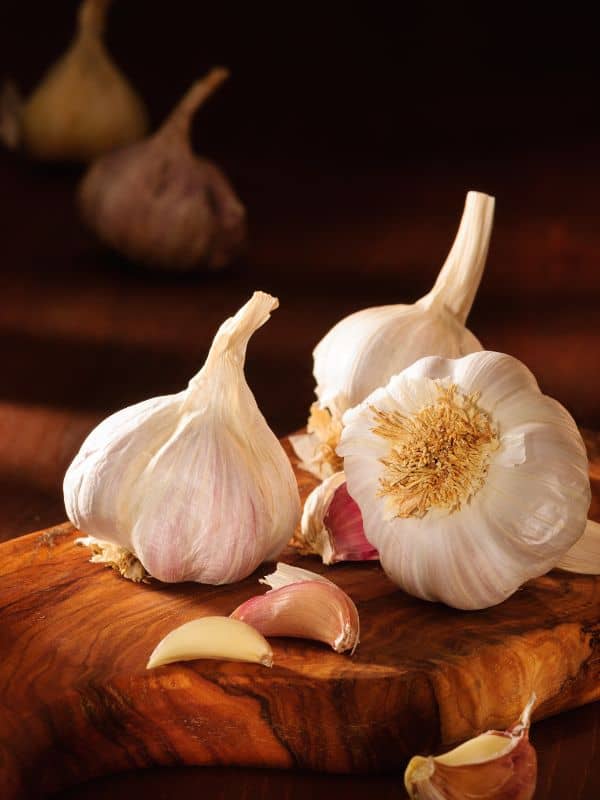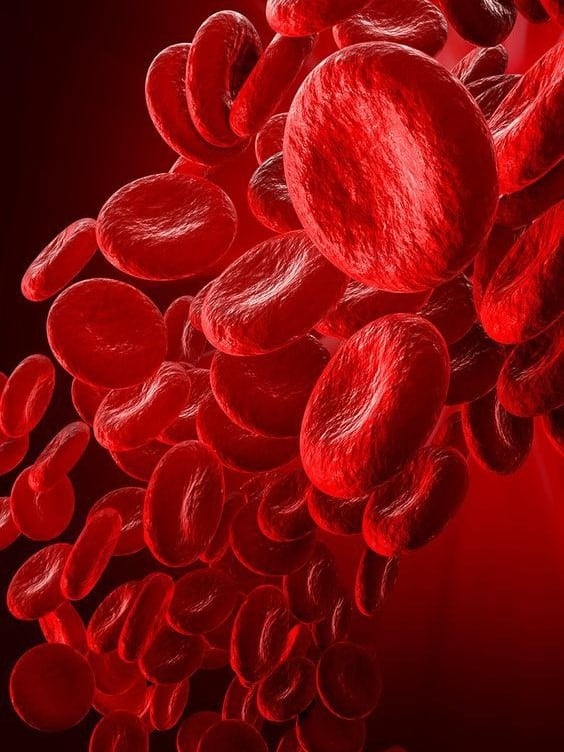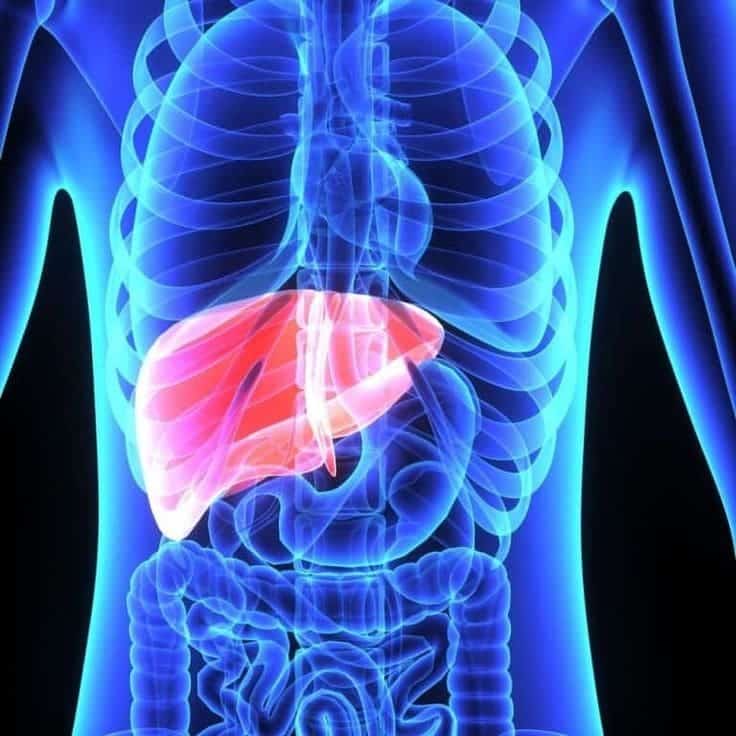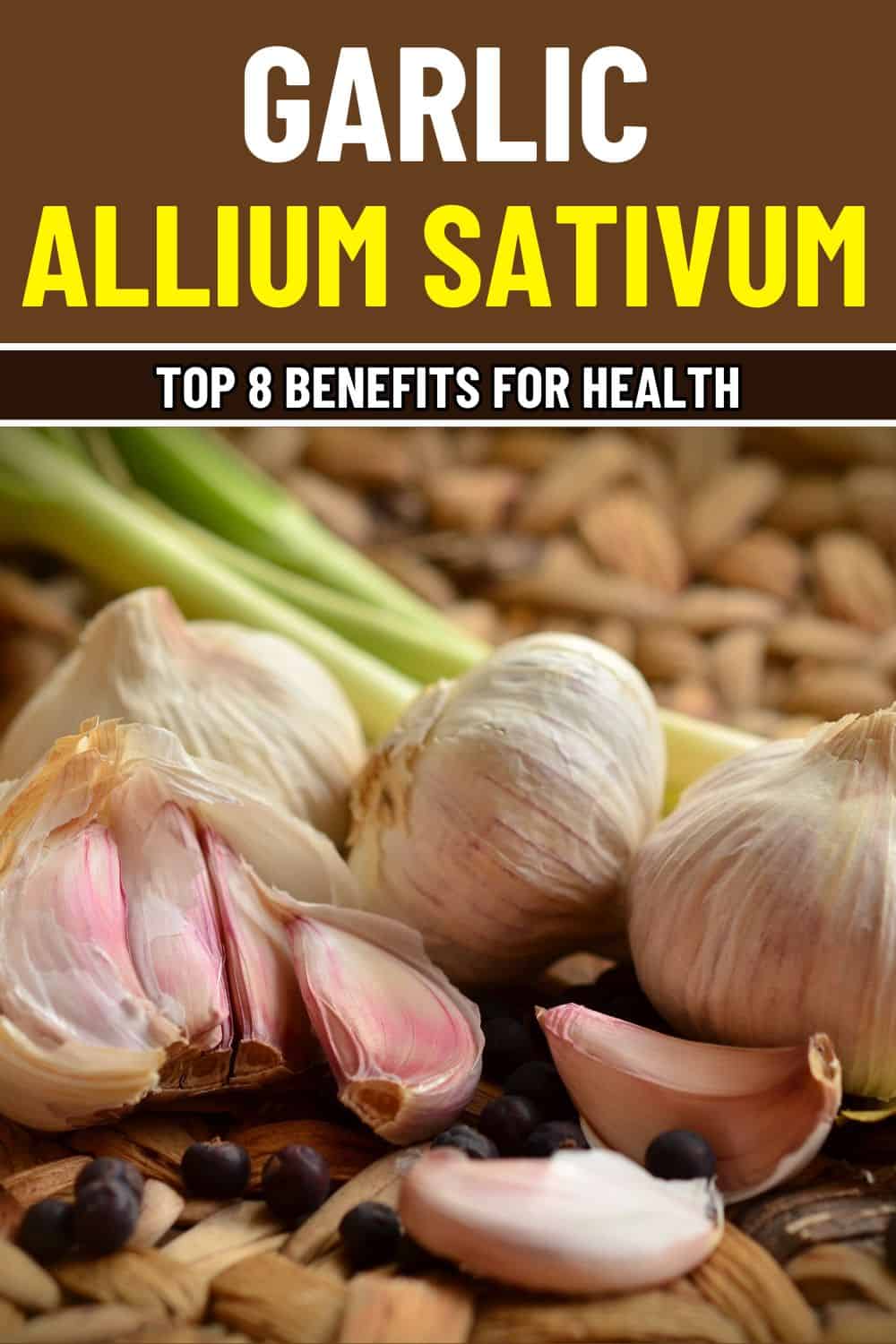Garlic (Allium sativum) is far more than just a kitchen staple. Beyond its rich flavor and aroma, this humble bulb has been celebrated for its health benefits for thousands of years.
From ancient civilizations to modern-day science, garlic has earned a reputation as a powerful medicinal herb.
But what exactly makes garlic so beneficial, and how can you harness its healing powers? Let’s explore the answer now!
#1. Boosts Your Immune System
Garlic is one of nature’s most effective immune boosters. The active compound allicin, found when garlic is crushed or chopped, is key in strengthening your immune system.
Allicin has been shown to enhance the activity of white blood cells, helping your body fight off infections and illnesses more efficiently.
Garlic also has antimicrobial properties, making it effective against both bacteria and viruses. Studies published in Advances in Therapy suggest that garlic supplementation can reduce the duration and severity of colds.
It has also been found to help prevent the onset of infections by increasing the body’s immune defenses. To get the most benefit, try consuming garlic raw or lightly cooked, as this preserves the allicin content.

#2. Supports Heart Health
Regular consumption of garlic has been shown to lower LDL cholesterol (the “bad” cholesterol) while raising HDL cholesterol (the “good” cholesterol), promoting overall heart health.
Additionally, garlic helps reduce blood pressure, which is a key factor in preventing heart disease and stroke.
A meta-analysis published in The Journal of Nutrition revealed that garlic supplementation significantly reduced both systolic and diastolic blood pressure in people with hypertension.
Garlic’s ability to relax blood vessels and improve blood flow contributes to its heart-protective effects.

#3. Reduces High Blood Pressure
High blood pressure, or hypertension, is a leading cause of cardiovascular disease. Fortunately, garlic is an effective natural remedy for managing high blood pressure.
Garlic works by dilating the blood vessels and improving blood flow, which helps to lower overall blood pressure levels.
In clinical studies, garlic has been found to lower blood pressure by around 8-12 mmHg for systolic pressure and 5-7 mmHg for diastolic pressure.
In fact, the effect is similar to that of blood pressure medications but without the side effects. To reap the benefits, aim for 1-2 cloves of garlic per day or consider a garlic supplement with a proven dosage.

#4. Anti-Inflammatory and Antioxidant Effects
Chronic inflammation is linked to arthritis, heart disease, and even cancer. Garlic’s powerful anti-inflammatory properties can help reduce inflammation throughout the body.
The sulfur compounds in garlic, such as diallyl disulfide, have been shown to block the production of inflammatory molecules, helping to protect your body from long-term damage.
With antioxidants, garlic helps fight oxidative stress. Oxidative stress can damage cells. By neutralizing free radicals, garlic helps prevent cellular damage and supports healthy aging.
The Journal of Nutrition has demonstrated that garlic helps reduce inflammatory markers like C-reactive protein (CRP) and interleukin-6 (IL-6), linked to inflammation-related diseases.

#5. Supports Digestive Health
Garlic has antispasmodic properties, which means it can help soothe the muscles in your digestive tract, preventing cramps and discomfort.
It also has antibacterial properties that can help combat harmful bacteria in the gut, promoting a healthy gut flora balance.
A study in Frontiers in Pharmacology found that garlic is beneficial for gut health, supporting digestion and preventing the overgrowth of harmful bacteria like H. pylori, which can cause ulcers.
Garlic may also help reduce bloating and gas, making it a helpful remedy for those with digestive disorders such as IBS.

#6. Supports Liver Detoxification
Garlic is known to support your liver’s detoxification processes. It contains sulfur compounds that aid in the removal of toxins and heavy metals from the body.
These compounds activate enzymes in the liver that help flush out harmful substances, allowing the liver to function optimally.
According to a study in Environmental Toxicology and Pharmacology, garlic can help reduce liver toxicity and improve liver enzyme activity.
Regular garlic consumption supports your body’s natural detox systems, ensuring that harmful toxins are cleared more efficiently.

#7. Helps with Weight Management
Garlic may play a role in managing your weight. By boosting metabolism and supporting fat burning, garlic can aid in weight loss efforts.
It also helps to regulate blood sugar levels, preventing insulin spikes that can lead to weight gain. Garlic’s ability to support fat breakdown is a great addition to a weight management plan.
Garlic supplementation is believed to aid in reducing body fat and improving body composition, especially when combined with regular physical activity and a healthy diet.

#8. Potential Anticancer Benefits
Garlic has shown promising potential in reducing the risk of certain types of cancer, particularly cancers of the digestive tract, such as colon, stomach, and esophageal cancer.
The sulfur compounds in garlic are believed to help prevent the formation of cancerous cells and slow the growth of tumors.
Studies suggest that garlic can reduce the risk of cancer by affecting cellular processes and inhibiting the growth of cancer cells.
In particular, a study in Cancer Prevention Research found that people who consumed garlic regularly had a lower incidence of colorectal cancer.

How to Incorporate Garlic into Your Diet
- Raw garlic: Raw garlic provides the highest concentration of allicin. You can crush or chop it and add it to salads, smoothies, or spreads.
- Cooked garlic: Cooking garlic may slightly reduce its allicin content, but it still retains many beneficial properties. Add it to soups, sauces, stir-fries, or roasted vegetables.
- Garlic supplements: If you don’t enjoy garlic taste or find it hard to consume raw garlic regularly, consider taking garlic supplements as capsules or tablets.

Cautions and Precautions
Garlic can have a mild blood-thinning effect, so if you’re taking anticoagulant medications (like warfarin), consult your doctor before increasing your garlic intake.
Some people may experience digestive discomfort, such as bloating or gas, especially when consuming large amounts of raw garlic. Start with small amounts to see how your body reacts.
If you’re pregnant or breastfeeding, it’s best to consult a healthcare provider before taking garlic supplements, as large amounts may cause uterine stimulation.
Disclaimer
This article is for informational purposes only and is not intended to replace medical advice.
Always consult with a healthcare provider before starting any new supplement, especially if you are pregnant, breastfeeding, or taking medications.







